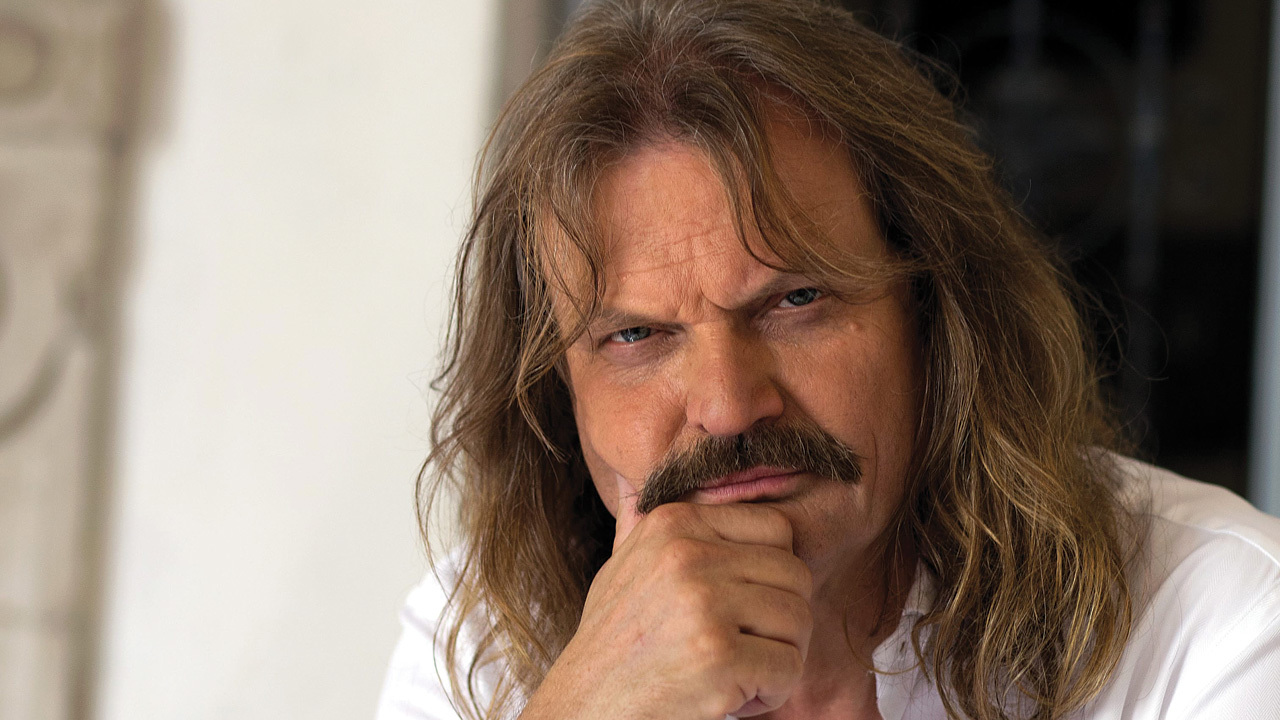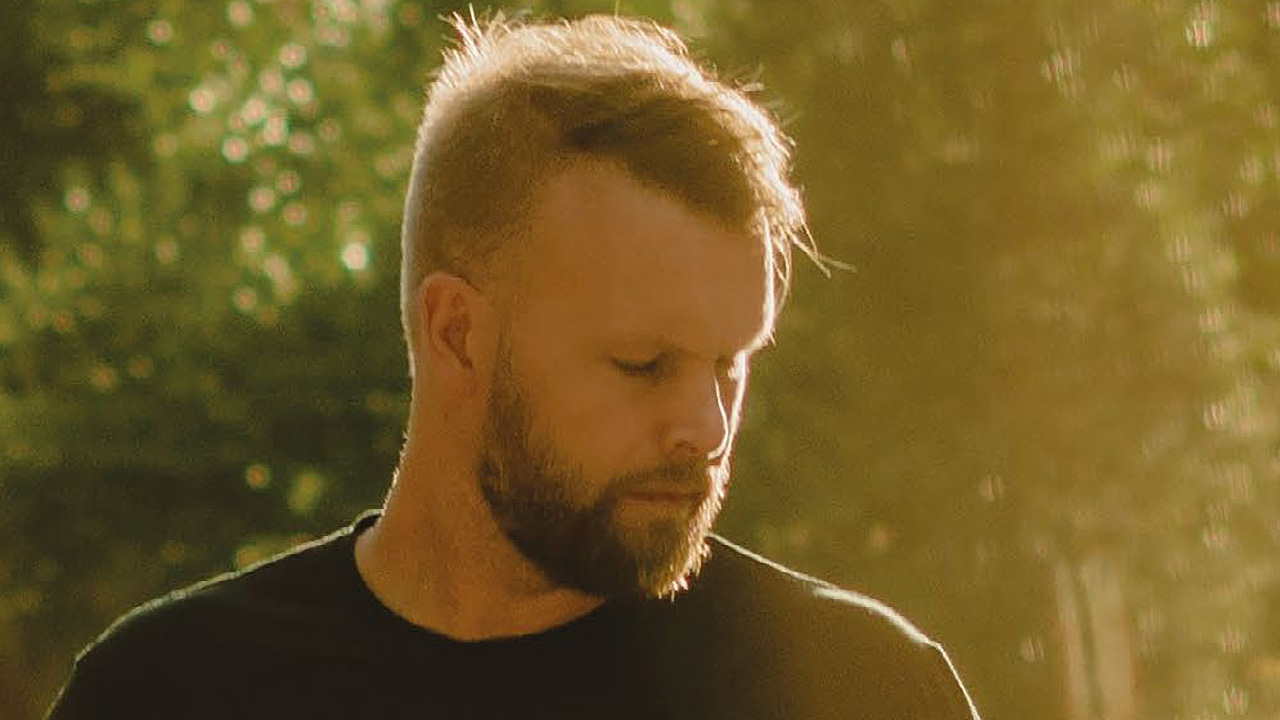Leslie Mandoki: "Everybody knows that egos kill music"
Hungarian Leslie Mandoki is bringing his star-studded Soulmates project to the UK for the first time, and is ready to fulfil his dream to play in what he calls “the heartland of prog rock"

To say that Leslie Mandoki has had an eventful life is to be a master of understatement. Born in communist Hungary, he dreamt of one day getting the chance to play with the musicians he listened to on smuggled cassette tapes. After escaping to Germany in 1975, he became a pop star and entered the Eurovision Song Context with the disco group Dschinghis Khan, before becoming a music producer working with the likes of Phil Collins and Lionel Richie. In 1992 he first assembled the Man Doki Soulmates, an ever-evolving supergroup that over the years has attracted the talents of Greg Lake, Jack Bruce, Ian Anderson, Al Di Meola, Mike Stern, Steve Lukather and stars from across the musical spectrum.
You’ve worked with so many British musicians in Soulmates. Why have you waited so long to bring the show to London?
I don’t know. I’m a Hungarian-born guy and around 25 years ago I was building a big music studio near Munich, one of the biggest in continental Europe, and we had a continental Europe record deal, so we always stuck to that – for no reason. It’s just the music industry, sometimes there’s no logic behind it, it’s not like you can explain it. But I always felt very influenced by British acts. As I was growing up behind the Iron Curtain, I always had the feeling that British progressive rock, and the bands that came from the United States in answer to that, was the soundtrack of the student opposition movement. Decades later I became friends with Mikhail Gorbachev because I created a musical charity project for him, and he confirmed for me then that behind the Iron Curtain, British progressive rock was the soundtrack of the opposition movement. They could keep out TV, they disrupted the BBC and Voice Of America and Radio Free Europe, and magazines and newspapers were not coming into the Soviet Union anyway, so Jethro Tull was the enemy. That’s what I felt when I was 16. I had a fourth-generation analogue tape copy of A Passion Play and I said, “This is the soundtrack of freedom.”
You studied at the Conservatory in Budapest – was that classical music? Was any Western music on the curriculum?
I also studied jazz, so we were into Coltrane and Miles Davis. I’m one of the few musicians who did not grow up on The Beatles and Stones. My first rock experience was King Crimson, Yes, Jethro Tull and Cream, Jimi Hendrix. I studied music and was very much into this modern jazz rock like Miles Davis’ later stuff, Weather Report, Return To Forever, Mahavishnu Orchestra and then King Crimson. But mainly Jethro Tull and the way Jack Bruce composed and sang was a big influence.
Were you ever nervous or starstruck when you had the chance to play with your heroes, such as Ian Anderson and Jack Bruce?
Actually, that was my plan. I wasn’t nervous because that was the challenge. I was the rock voice of the student opposition, and as I escaped communism through a tunnel and got to a refugee camp, the guys there asked me, “What do you want to do here?” And I said, “I want to play with Ian Anderson, Jack Bruce and Al Di Meola.” They looked at me like, “You must be crazy.” The reason I escaped communism was just to play with those guys. It was challenging to write music and bring the right guys together and of course it was a phenomenal honour and privilege to bring these incredible players together to play this music. It was wonderful. This was my vision to live my dreams.
Sign up below to get the latest from Prog, plus exclusive special offers, direct to your inbox!
The Soulmates roster covers such a wide spectrum, from jazz players to rock legends and pop stars. Does everyone speak the same musical language?
Yes. Take Nik Kershaw as an example. He is one of the most blessed musicians, he’s just an incredible talent. Here he’s playing with Anthony Jackson, Randy Brecker, Bill Evans and Al Di Meola, so he can show different aspects of his musicality. He’s one of the greatest ever, and he plays jazz rock stuff so beautifully. If you listen to how he sings along with Chaka Khan – come on, it’s just incredible.
In your shows you play both your own songs and classics made famous by members of the Soulmates, like Hold The Line and Blinded By The Light. What are the trickiest ones to perform live?
All the classics are easier because they’ve been played so often, so we can be creative because the basics are there, it’s fun to create our own versions. Some of our crazy recordings – which are kind of live, because I have a big studio where we have a Steinway, a Hammond, a Fender Rhodes and all this stuff, and we play for real, analogue recording, so no post-production – some of them are very complex songs with a lot of changes. It’s challenging to bring those to the stage. And we’re going to bring them all, so it’s going to be a long concert. Not a lot of visuals. If people are into very sophisticated music, handcrafted and very idealistic, then this is the concert for them.
How do you approach working with someone like Ian Anderson, who is a bandleader in his own right?
Number one, Ian Anderson is the king, he’s the Pope, he’s an all-around genius, he has the most intelligent and intellectual musicality and lyrical capacity. And of course he’s a leader. But actually, everybody is a leader in this band and because everybody is a leader, everybody knows that egos kill music, so they always let the leader be the leader because they know how it is if someone doesn’t. That’s the magic. He’s my hero. I adore him, he’s outstanding, he was building progressive rock, creating the foundation of that.
What inspires your songwriting?
The really good songs are not written by me, they’re written by life. I’m just writing them down. They’re just happening around you; the song is written by the life you live and I’m kind of the scriptwriter.
After starting his writing career covering the unforgiving world of MMA, David moved into music journalism at Rhythm magazine, interviewing legends of the drum kit including Ginger Baker and Neil Peart. A regular contributor to Prog, he’s written for Metal Hammer, The Blues, Country Music Magazine and more. The author of Chasing Dragons: An Introduction To The Martial Arts Film, David shares his thoughts on kung fu movies in essays and videos for 88 Films, Arrow Films, and Eureka Entertainment. He firmly believes Steely Dan’s Reelin’ In The Years is the tuniest tune ever tuned.

